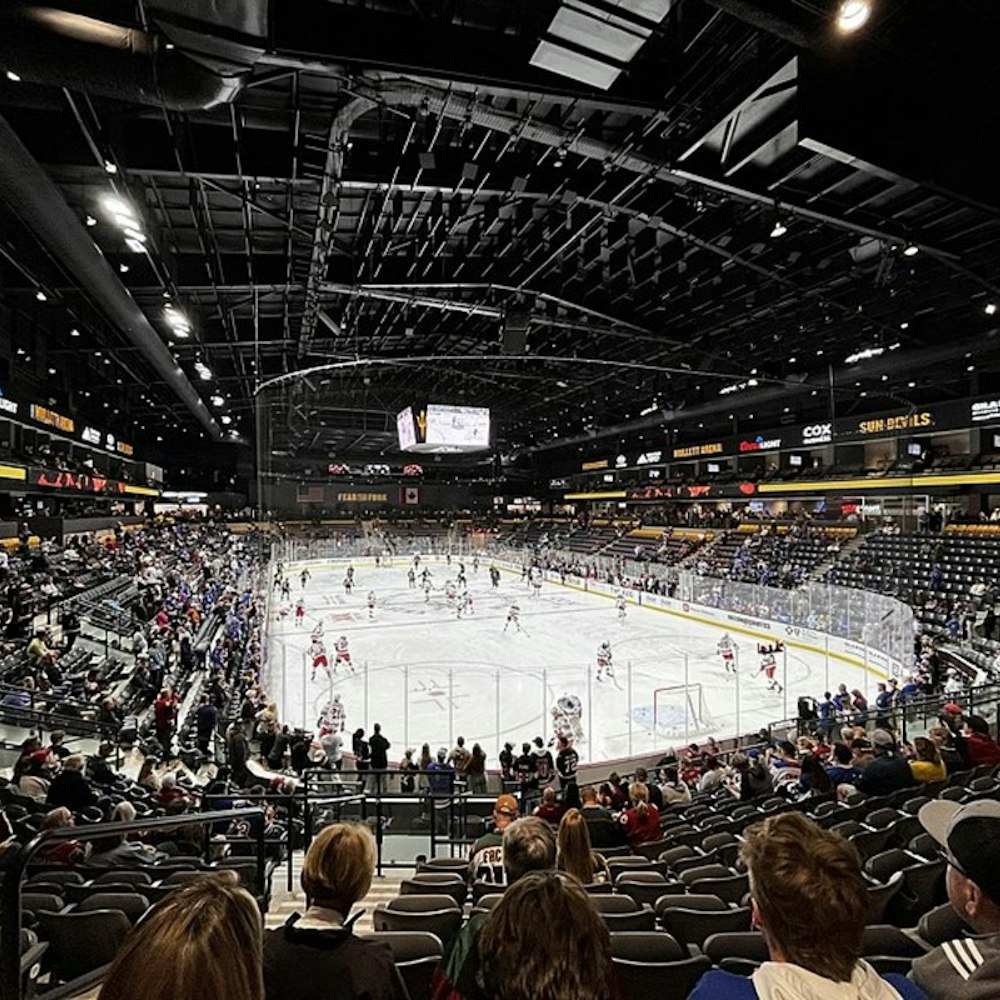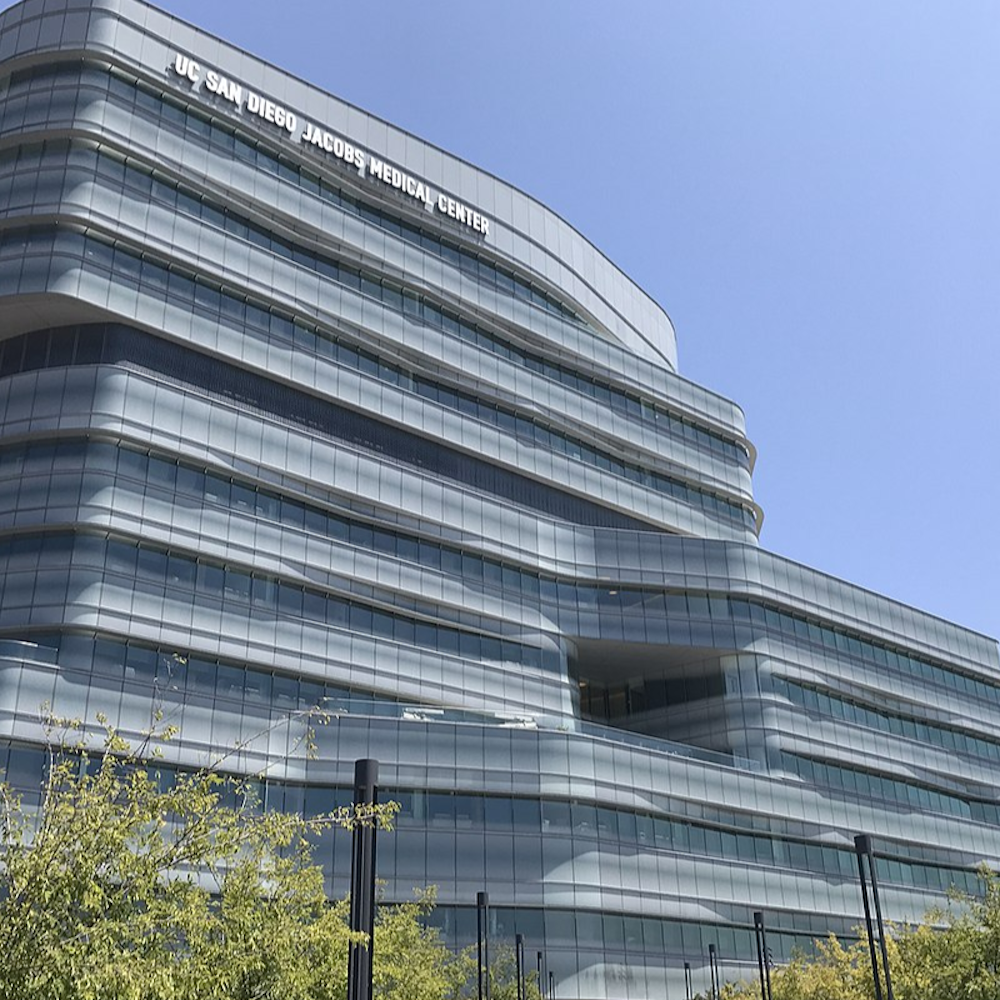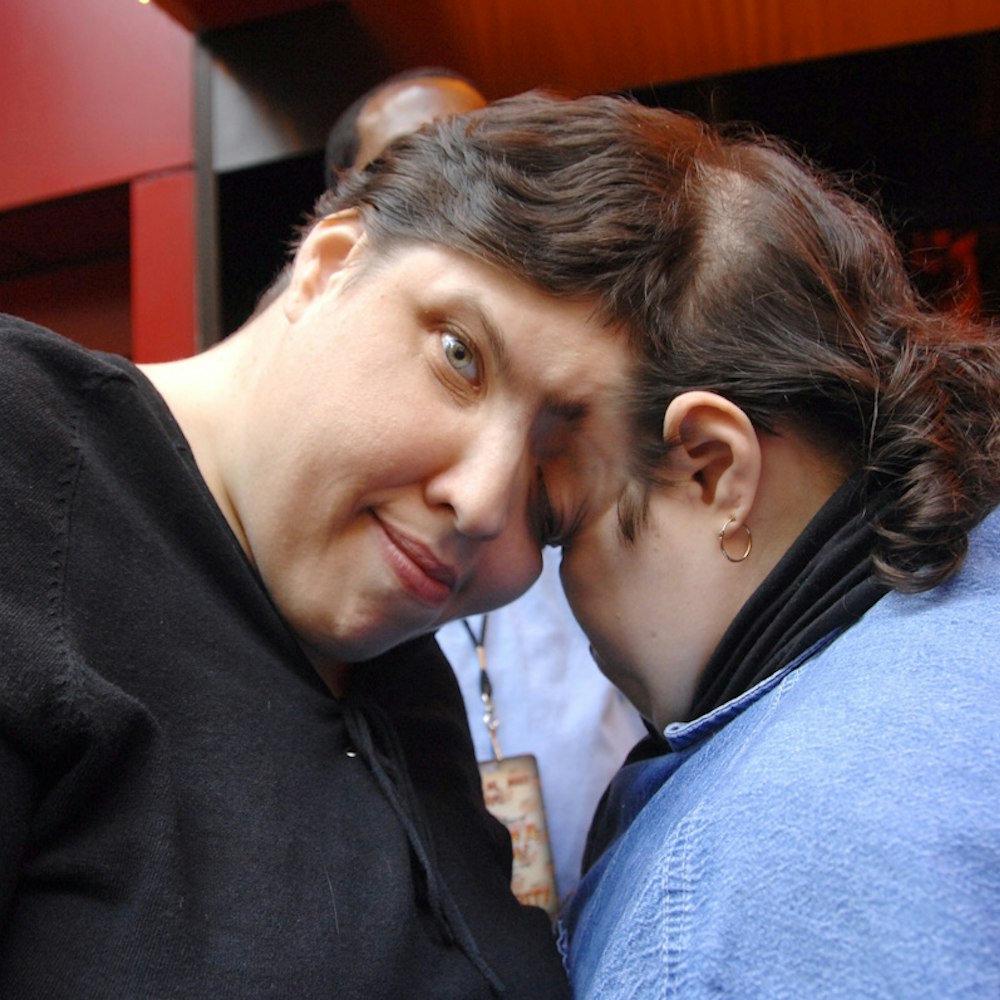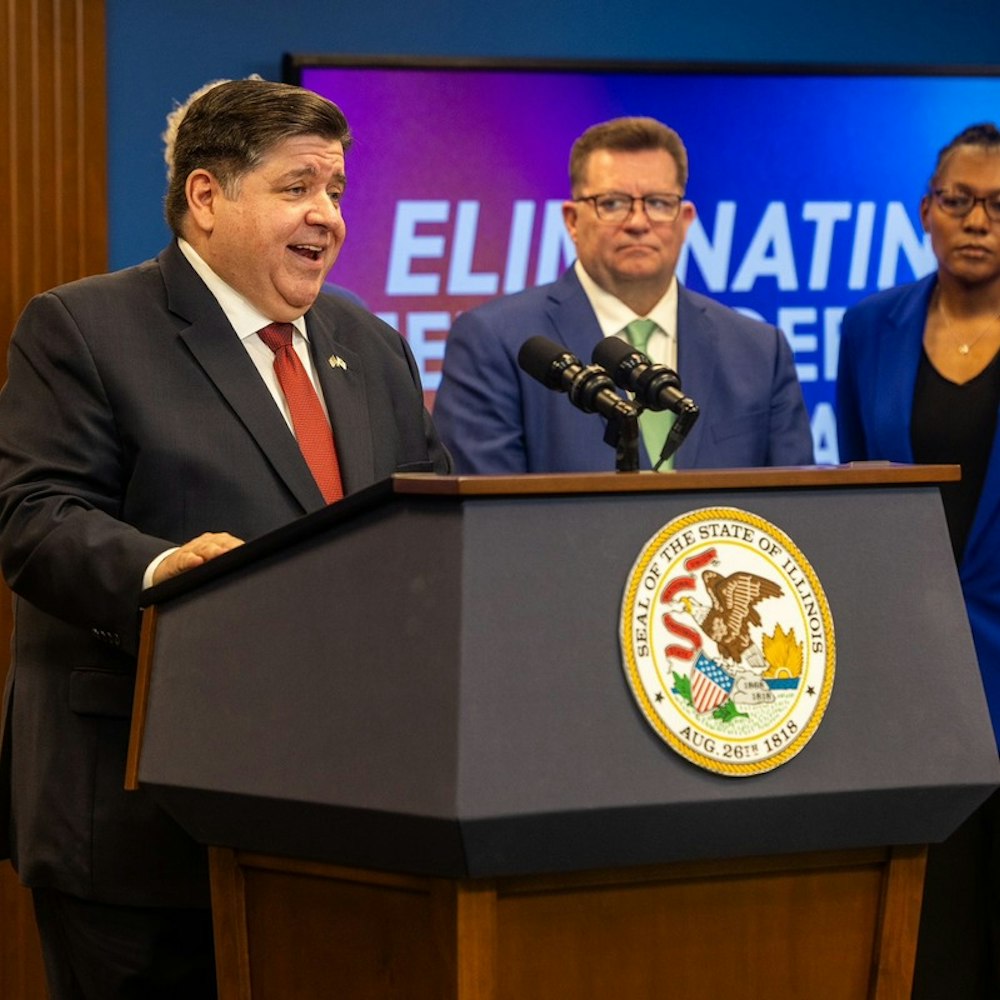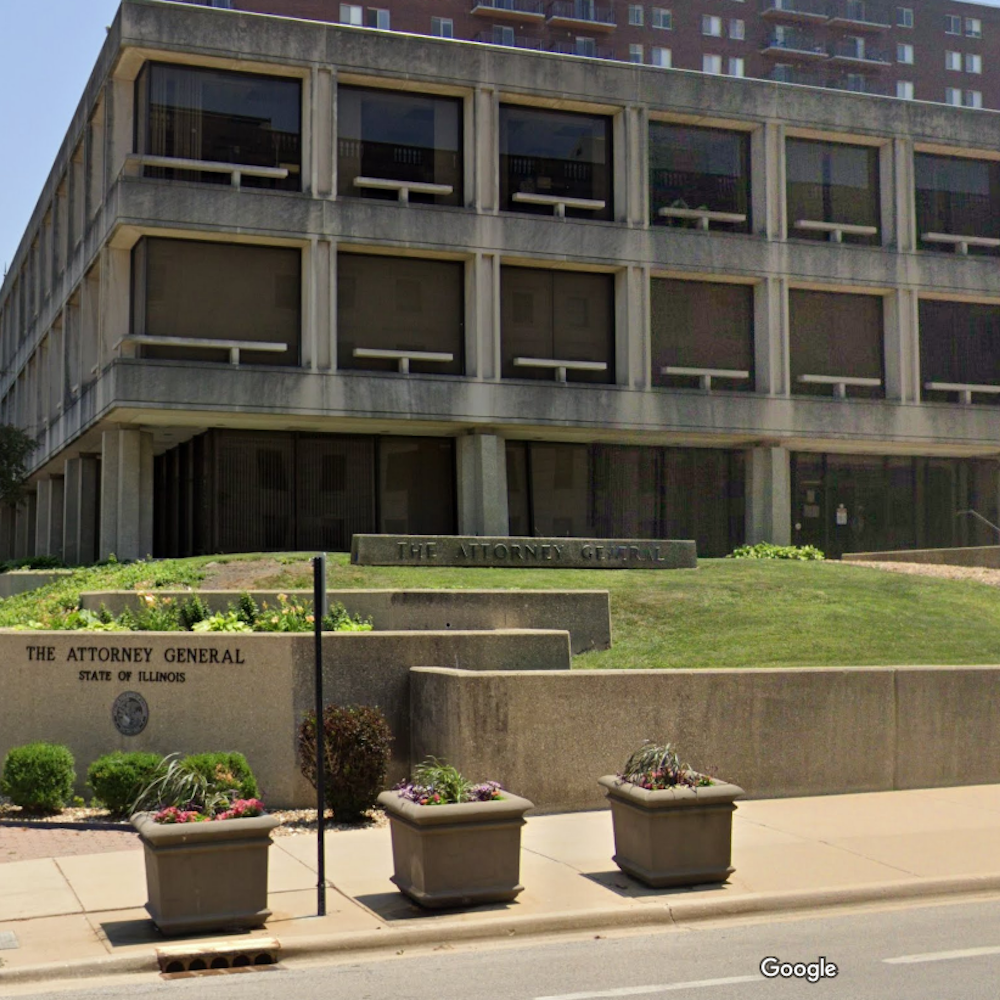![Rent-Controlled Buildings Not Eligible For Density Bonus, Planning Says [Updated]](https://img.hoodline.com/uploads/story/image/15582/ahbpdistrict7.jpg?max-h=442&w=760&fit=crop&crop=faces,center)
The San Francisco Planning Department held a public hearing at the County Fair Building last night to present details and answer questions about the Affordable Housing Bonus Program (AHBP), proposed legislation that would reward developers who create more affordable housing than is currently required by law.
Planning officials went through the details of the program for an hour before answering questions from attendees; the announcement that AHBP was excluding parcels with rent-controlled buildings from the density bonus program was a main point of interest, but many remained convinced that these new zoning rules would kick off massive redevelopment that displaced residents and merchants.
Using AHBP bonuses, developers who create new housing in high-transit corridors in the Sunset, Castro, Haight, North Beach, Divisadero and Polk areas could build two additional stories if they permanently set aside 30 percent of the new units for residents in "very low, low, moderate and middle-income households," according to the Planning Commission. Buildings that are 100 percent affordable would be allowed three extra stories.
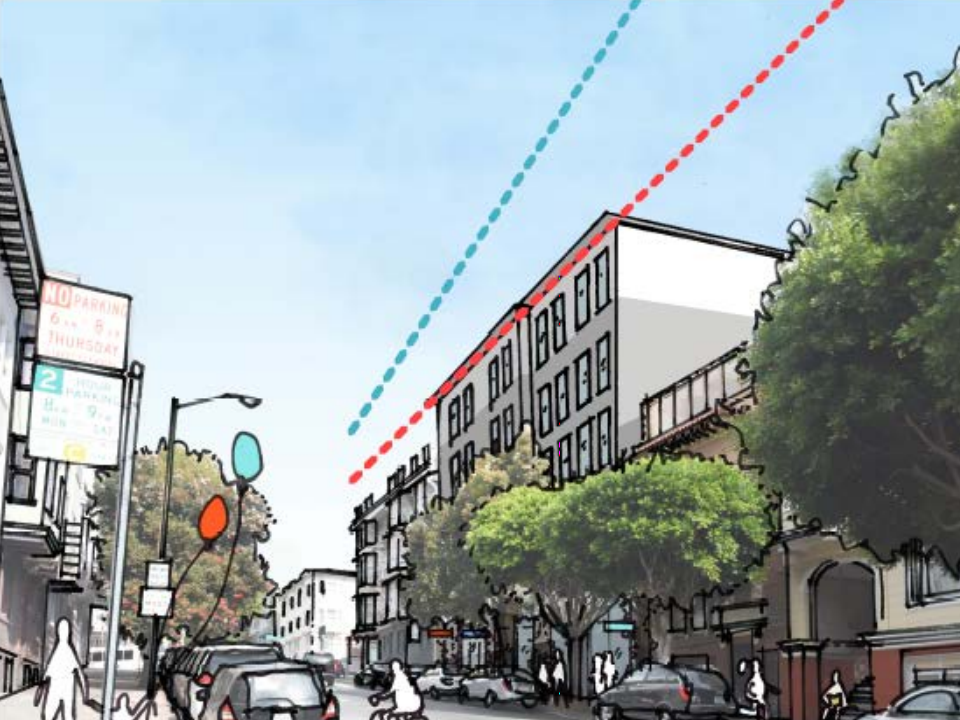 Red line = existing height limit. Blue line: with AHBP bonus. (via SF Planning)
Red line = existing height limit. Blue line: with AHBP bonus. (via SF Planning)
Before the meeting began, District 7 Supervisor Norman Yee expressed "some of the serious concerns I have about this particular approach to deal with our housing crisis." Yee said AHBP is a "one-size-fits-all approach" that doesn't address individual neighborhood concerns. "The Planning Department really needs to hear from you," he told attendees.
"I understand that the program means to increase opportunities for middle-income families to stay in San Francisco, and I support that," said Yee. "But I don't believe we should do away with 50 years of extensive planning and zoning work," he added, winning a round of applause. "We need to do better," said Yee, noting that the District 7 meeting was actually held within the borders of District 5.
"I cannot support this proposal as it is currently drafted," he said.
Several neighborhood associations, housing activists and residents shared concerns that AHBP would eliminate rent-controlled housing, displace merchants and transform neighborhood character with taller, modern buildings that wouldn't fit in with their surroundings. Other attendees assailed Planning for failing to do a better job of building awareness about AHBP and trying to rush the program through.
"I wouldn't even be here if I hadn't heard about it from a friend," one woman protested. "You should be mailing everyone in the city about this," a man said.
AHBP Program Manager Kearstin Dischinger walked attendees through a presentation that addressed many of these concerns. Although 30,500 land parcels around the city would qualify for incentives under the program, Dischinger said analysts determined that most owners will not choose to demolish existing buildings to earn the right to build higher, denser structures.
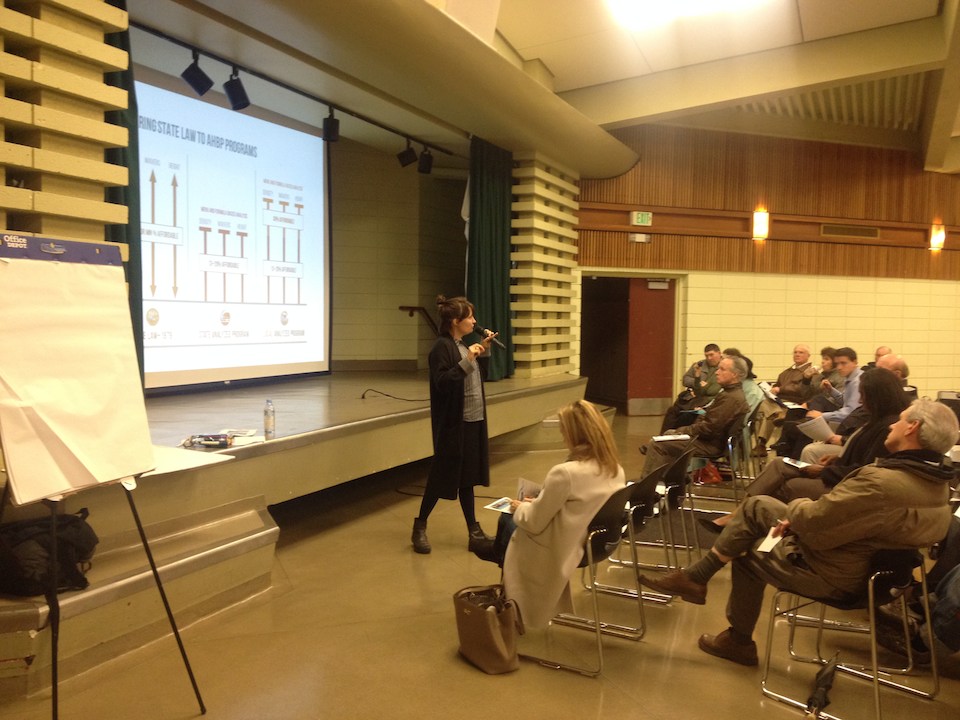 AHBP Program Manager Kearstin Dischinger addresses the room.
AHBP Program Manager Kearstin Dischinger addresses the room.
In District 7, Planning identified just 475 eligible parcels. Neighborhoods like the Western Addition, Bayview and Financial District, which contain more underdeveloped "soft sites" such as parking lots and gas stations, are likely to see more construction under the program, she said.
If the program is approved, Planning estimates that 4 percent of new construction would be in Haight-Ashbury, with less than 1 percent in the Inner Sunset, 3 percent in Outer Sunset, 6 percent in Parkside, and 1 percent west of Twin Peaks.
Under AHBP, Dischinger said Planning has no plans to alter the project review process or limit community review opportunities; neighbors who live near projects will still be able to petition Planning for a discretionary review. "The culture of community participation and development review and approval is not changing through this program," she said.
With regard to neighborhood character, Dischinger said AHBP projects will be subject to Planning design guidelines that mandate "inviting and active ground floors ... it's a way for us to have a conversation about the more subjective qualities of a building."
Apart from ground-floor retail, design requirements for AHBP include "transparent and openable windows," setbacks for higher floors, planting vines and "living walls" along property lines and promoting the use of "diverse building façade materials."
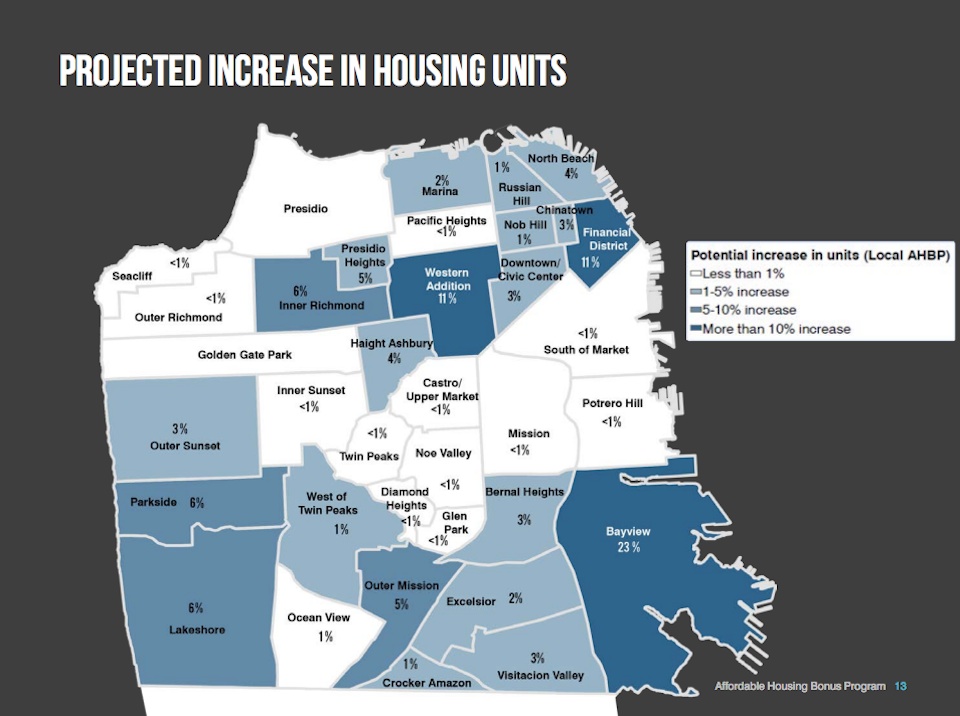 Projected increase in AHBP units, by neighborhood (via SF Planning)
Projected increase in AHBP units, by neighborhood (via SF Planning)
According to Dischinger, displacement was top of mind while preparing the AHBP plan. "Our mayor, our supervisors are very vested in solving the affordable housing problems that we have, but not at the expense of existing affordable housing, including rent-controlled units," she said.
"If an existing parcel has an existing rent control unit, it's not eligible for this program," said Dischinger, citing a "friendly amendment" by Supervisor London Breed that would add this condition to the final AHBP legislation. Later this week, Dischinger said her office will publish a case report that officially excludes parcels with rent-controlled units from participating in AHBP.
Because commercial rents aren't controlled, Dischinger said Planning is creating an early-warning system to alert merchants as soon as their address appears in an AHBP application. "Even though demolition might be two or three years away," merchants will be put in touch with the Office of Economic and Workforce Development, who'll consult to help them create a response plan.
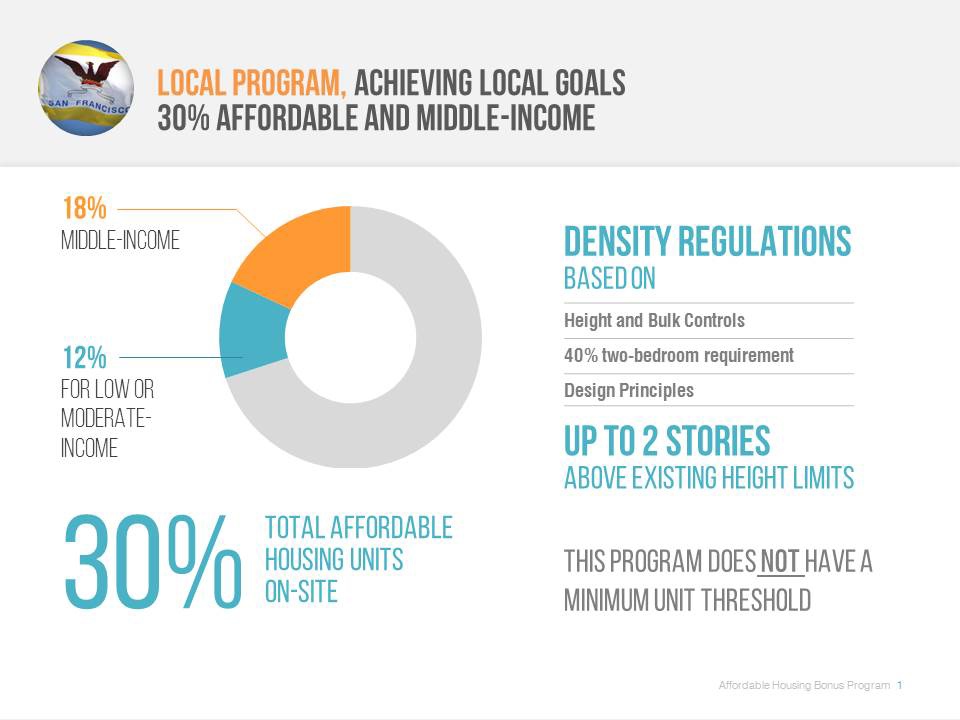
San Francisco's proposed ABHP. via Planning Commission
"When they find their new location, we at the Planning Department will put you in a priority processing queue and help you get that new space as soon as possible with as little barriers as possible," said Dischinger.
Attendees submitted written questions and also engaged Dischinger and her aides directly. Many questions and concerns didn't relate specifically to the changes in AHBP, but inquired about aspects of the City's zoning codes and inclusionary housing policies. Many attendees were openly skeptical about how well enforced income verifications are for affordable housing tenants.After Dischinger's presentation, most attendees said boosting density would worsen a wide range of problems, such as water conservation, backyard shadows, less defensible space, more crowded Muni rides and even more pressure on street parking. Several attendees expressed surprise and dismay after Dischinger said there were no zoning protections against casting shadows on private property."Short of boring a new tunnel, how are we going to have transportation in our district?" asked one attendee.
"Almost every part of the program area is within a quarter mile—which is what we consider to be walking distance—to Muni Rapid Network," said Dischinger.
"Muni is full!" interjected Maria Wabl, a member of Inner Sunset Neighbors Association.
Dischinger explained that the Muni Rapid Network refers only to parts of the City's transportation system where SFMTA has committed to making major investments to improve service. "That's your Geary corridor, your N, your J, all of those areas," she said.
Tomorrow, Planning will release a memo containing "nips and tucks" to the proposed legislation, such as limiting the number of parcels that can be combined for new construction, Dischinger said. "I've been at the Planning Department for 10 years, and I've never had a project start and finish without dramatic changes," she said.
The Planning Commission will vote on AHBP in a hearing on Thursday, January 28th at noon in Room 400 at City Hall. If the measure passes, the Board of Supervisors' Land Use Committee will hold a vote; assuming it approves, the measure goes to the full Board and then to the Mayor.
Tomorrow, the Haight Ashbury Neighborhood Coalition is hosting a panel on AHBP in the Park Branch Library (1833 Page St.) at 7pm. Dean Preston of Affordable Divis, Joseph Smooke of people.power.media and Paul Webber, a member of the Telegraph Hill Dwellers Executive Committee, will "present their concerns about the proposed zoning change," according to the event description.Additional AHBP meetings: a session for District 3 residents will be held at Saint Paulus Lutheran Church (1541 Polk St.) on January 14th from 6 to 8 pm, and District 4's presentation is scheduled for January 19th from 7 to 9 pm at the Sunset Recreation Center (2201 Lawton St.)
Update: AHBP Program Manager Kearstin Dischinger posted this comment via Disqus: "Please check the Planning Department website later today - we will be uploading a case report with the proposed language. There is NOT a time limit on the limitation."
